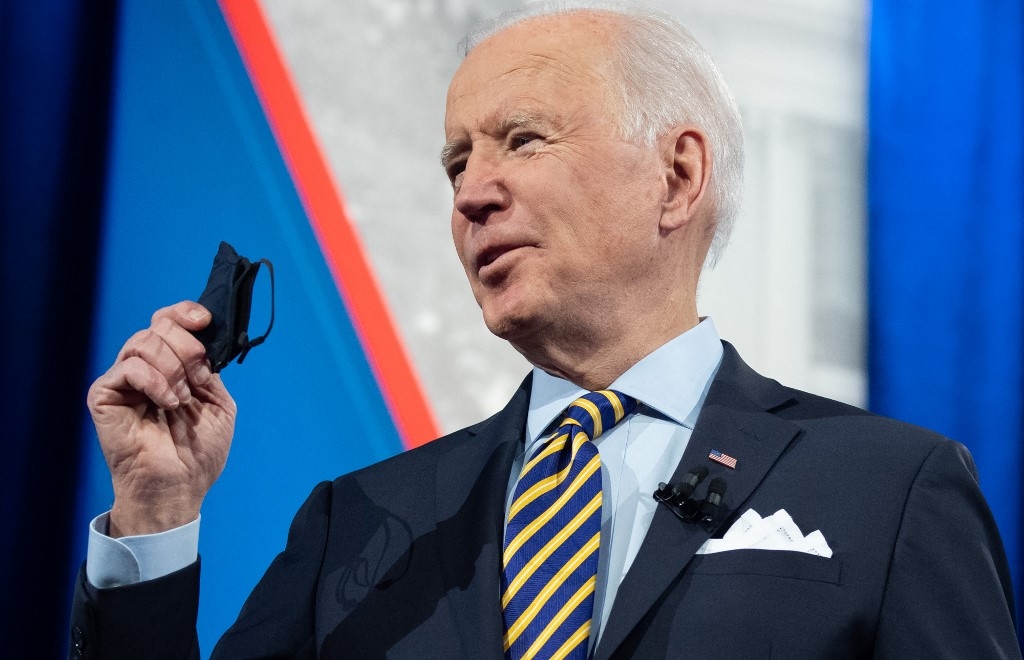Biden downplays Uighur persecution as part of China's 'different norms'

US President Joe Biden appeared to downplay China's persecution of its Uighur Muslim minority, saying there were "culturally different norms" in every country.
Biden made the remarks during a CNN town hall meeting on Tuesday in which he was asked by host Anderson Cooper about his recent phone call with Chinese President Xi Jinping.
During the call, Biden reportedly pressed his counterpart over human rights abuses in Xinjiang province, where at least one million Uighurs are said to be held in internment camps.
According to several reports, the Uighurs are undergoing political "re-education", while the region itself is under intense and intrusive surveillance. The New York Times has described conditions in Xinjiang as a "virtual cage" and "an incubator for increasingly intrusive policing systems that could spread across the country and beyond".
Biden answered Cooper's question by appearing to relay Xi's justification for the abuses.
"If you know anything about Chinese history, it has always been... victimized by the outer world when they haven't been unified at home," Biden said. "So the central - well, vastly overstated - central principle of Xi Jinping is that there must be a united, tightly controlled China. And he uses his rationale for the things he does based on that."
Biden continued, "I point out to him no American president can be sustained as a president if he doesn't reflect the values of the United States, and so the idea I'm not going to speak out against what he's doing in Hong Kong, what he's doing with the Uighurs in western mountains of China, and Taiwan, trying to end the One China policy by making it forceful… I said, and, by the, he said, he - he gets it. Culturally there are different norms that each country and their leaders are expected to follow."
Cooper asked: "When you talk to him, though, about human rights abuses, is that as far as it goes in terms of the US, or is there going to be any actual repercussions for China?"
Biden replied: "Well, there will be repercussions for China, and he knows that. What I'm doing is making clear that we are going to reassert our role as spokespersons for human rights at the UN and other agencies that have an impact on their attitudes. China is trying very hard to become the world leader, and to get that moniker and to be able to do that, they have to gain the confidence of other countries. And as long as they are engaged in activity that is contrary to basic human rights, it's gonna be hard for them to do that.
"But it's much more complicated than that, I shouldn't try to talk China policy in 10 minutes on television here."
Biden's comments stand in contrast to those of Secretary of State Antony Blinken, who said he agreed with the previous administration's declaration that the treatment of the Uighurs constituted a genocide.
A recent BBC report revealed that women had been systematically raped and sexually abused in the camps. Following the report, China banned the broadcaster in its territory.
An investigation by the Associated Press also reported that Beijing used forced sterilisation and abortion to slash birthrates among its Uighur population.
Rushan Abbas, the executive director of the Campaign for Uyghurs, called on Biden to "clarify his remarks" and make "human rights the priority in China policy."
"We do hope that President Biden will clarify his remarks. We know that he views this as genocide, and we also know that he has spoken quite harshly regarding China’s human rights abuses. If this is a misspeak, we hope it will be remedied swiftly," she told MEE.
Middle East Eye reached out to the White House for comment but did not receive a response by the time of this article's publication.
Middle East Eye propose une couverture et une analyse indépendantes et incomparables du Moyen-Orient, de l’Afrique du Nord et d’autres régions du monde. Pour en savoir plus sur la reprise de ce contenu et les frais qui s’appliquent, veuillez remplir ce formulaire [en anglais]. Pour en savoir plus sur MEE, cliquez ici [en anglais].


